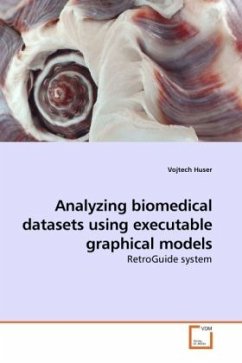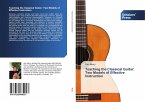Clinical data warehouses accumulate large amounts of terminology-coded data. In addition to increased accumulation of data, higher data granularity, and longer time-spans, there is also an increasing demand for analysis of this data. For a nonexpert, the ability to analyze this data unaided is very limited. To address this problem, we developed an analytical framework that works with flowchart models which can be extended with modular external applications and executed on retrospective data. This framework was inspired by emerging workflow technology. Workflow technology offers several tools which support modeling, execution, and extensive analysis of IT or organizational processes. The three specific aims of this dissertation were to review workflow technology and its current use, develop an analytical framework which utilizes graphical, process-based modeling, called RetroGuide (RG), and evaluate this framework using a series of case studies and a formal, comparison evaluation study.
Bitte wählen Sie Ihr Anliegen aus.
Rechnungen
Retourenschein anfordern
Bestellstatus
Storno








